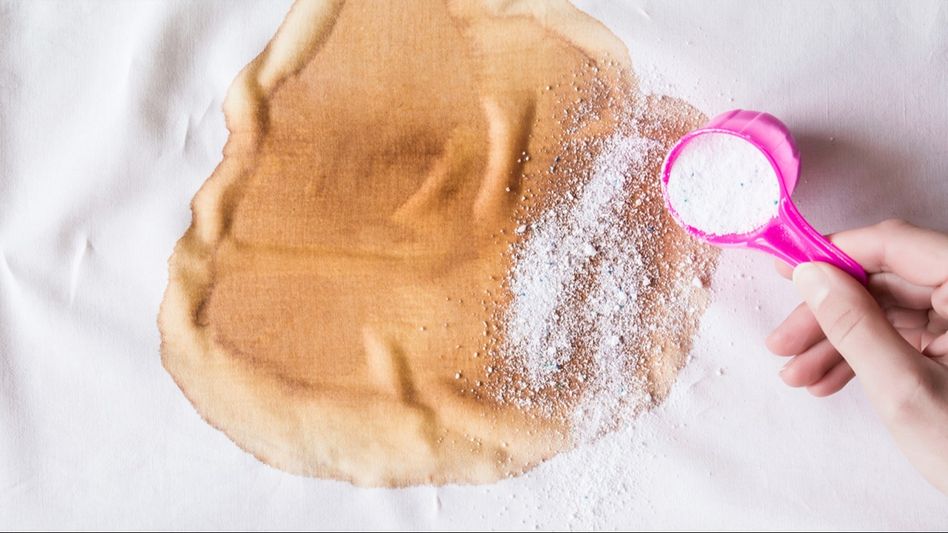Effective Home Remedies for Removing Tough Stains from Clothes
Stains on clothes are an inevitable part of daily life. Whether it’s a splash of coffee during breakfast, a smudge of grease from cooking, or grass stains from an active day outdoors, tough stains can be a real challenge.

Stains on clothes are an inevitable part of daily life. Whether it’s a splash of coffee during breakfast, a smudge of grease from cooking, or grass stains from an active day outdoors, tough stains can be a real challenge. While commercial stain removers are readily available, many people prefer using home remedies that are both cost-effective and environmentally friendly.
Understanding the Nature of Stains
Before diving into the remedies, it’s essential to understand that different stains require different treatments. Stains can be broadly categorized into several types:
Protein-Based Stains: These include blood, sweat, dairy products, and eggs.
Oil-Based Stains: These come from cooking oils, grease, butter, and cosmetics.
Tannin-Based Stains: Examples include coffee, tea, wine, and fruit juices.
Dye Stains: These are caused by products like ink, paint, and certain foods.
Home Remedies for Common Stains
Protein-Based Stains
Cold Water and Salt: For blood stains, rinse the fabric with cold water immediately. Sprinkle salt on the stain, gently rub it in, and let it sit for a few minutes. Rinse again with cold water before laundering as usual.
Hydrogen Peroxide: For persistent protein stains, apply hydrogen peroxide directly to the stain. Let it sit for a few minutes, then rinse with cold water. Be cautious with colored fabrics as hydrogen peroxide can act as a mild bleach.
Oil-Based Stains
Baking Soda and Dish Soap: Cover the stain with baking soda to absorb the oil. After letting it sit for a few minutes, add a few drops of dish soap and gently scrub with a soft brush. Rinse with warm water and repeat if necessary.
Cornstarch or Talcum Powder: For fresh oil stains, sprinkle cornstarch or talcum powder on the stain to absorb the oil. Let it sit for at least 15 minutes, then brush off the powder and wash the garment as usual.
Tannin-Based Stains
White Vinegar: Dab white vinegar directly onto the stain using a clean cloth or sponge. Allow it to sit for a few minutes before rinsing with cold water. This method works well for coffee and tea stains.
Lemon Juice and Baking Soda: For wine and fruit juice stains, apply lemon juice to the stain and sprinkle baking soda on top. Let it fizz for a few minutes, then gently scrub and rinse with cold water.
Dye Stains
Rubbing Alcohol: Apply rubbing alcohol to the dye stain using a cotton ball or clean cloth. Blot the stain gently and rinse with cold water. This method is effective for ink stains.
Hairspray: For ink stains on fabrics, spray a generous amount of hairspray onto the stain. Let it sit for a few minutes before blotting with a clean cloth. Rinse with cold water and repeat if necessary.
General Tips for Stain Removal
Act Quickly: The sooner you treat a stain, the easier it will be to remove.
Blot, Don’t Rub: Always blot the stain to avoid spreading it further into the fabric.
Test First: Before applying any remedy, test it on a small, inconspicuous area of the fabric to ensure it doesn’t cause discoloration or damage.
Avoid Heat: Do not use hot water or a dryer on stained fabrics until the stain is completely removed, as heat can set the stain permanently.
Removing tough stains from clothes doesn’t always require a trip to the store for expensive stain removers. With a bit of knowledge and some common household items, you can effectively tackle a variety of stains using simple home remedies. From baking soda and vinegar to hydrogen peroxide and lemon juice, these natural solutions are not only cost-effective but also kinder to the environment. By acting quickly and using the right techniques, you can keep your clothes looking fresh and stain-free.
Copyright©2025 Living Media India Limited. For reprint rights: Syndications Today









